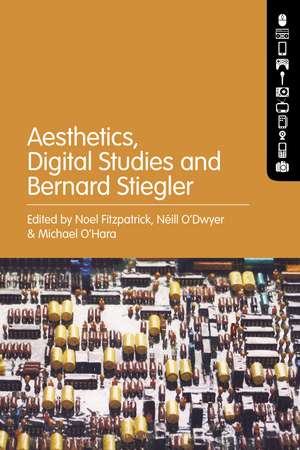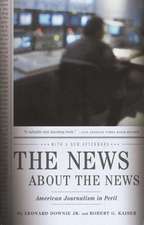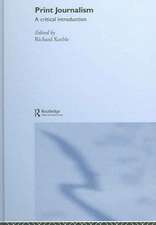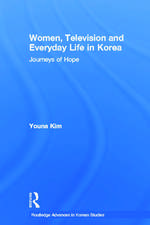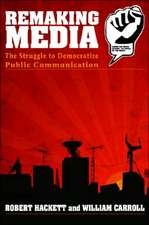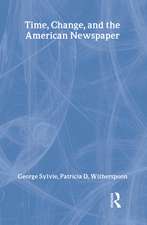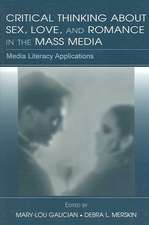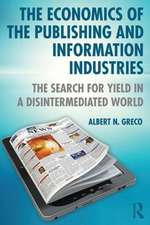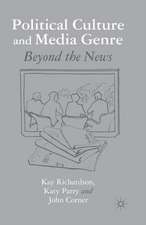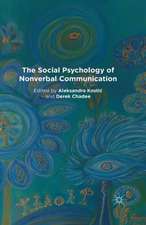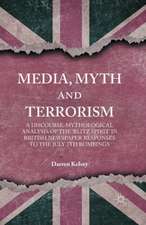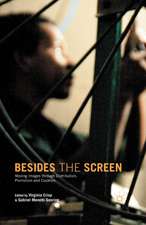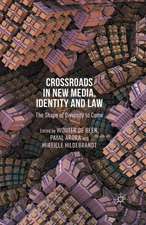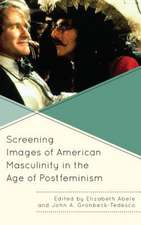Aesthetics, Digital Studies and Bernard Stiegler
Editat de Noel Fitzpatrick, Néill O’Dwyer, Michael O’Haraen Limba Engleză Paperback – 22 mar 2023
| Toate formatele și edițiile | Preț | Express |
|---|---|---|
| Paperback (1) | 191.04 lei 6-8 săpt. | +70.54 lei 7-11 zile |
| Bloomsbury Publishing – 22 mar 2023 | 191.04 lei 6-8 săpt. | +70.54 lei 7-11 zile |
| Hardback (1) | 568.55 lei 6-8 săpt. | |
| Bloomsbury Publishing – 8 sep 2021 | 568.55 lei 6-8 săpt. |
Preț: 191.04 lei
Preț vechi: 249.20 lei
-23% Nou
Puncte Express: 287
Preț estimativ în valută:
36.56€ • 39.70$ • 30.71£
36.56€ • 39.70$ • 30.71£
Carte tipărită la comandă
Livrare economică 22 aprilie-06 mai
Livrare express 18-22 martie pentru 80.53 lei
Preluare comenzi: 021 569.72.76
Specificații
ISBN-13: 9781501381102
ISBN-10: 1501381105
Pagini: 238
Ilustrații: 22 colour illus
Dimensiuni: 152 x 229 x 25 mm
Greutate: 0.32 kg
Editura: Bloomsbury Publishing
Colecția Bloomsbury Academic
Locul publicării:New York, United States
ISBN-10: 1501381105
Pagini: 238
Ilustrații: 22 colour illus
Dimensiuni: 152 x 229 x 25 mm
Greutate: 0.32 kg
Editura: Bloomsbury Publishing
Colecția Bloomsbury Academic
Locul publicării:New York, United States
Caracteristici
Extends and repositions the philosophy of Bernard Stiegler in relation to variety of cultural networks including visual art, performance, aesthetics, philosophy, film and music
Notă biografică
Noel Fitzpatrick is the Head of Research at the College of Arts and Tourism at Technological University Dublin, Ireland, and the Dean of the Graduate School of Creative Arts and Media. He is regularly invited to speak at, and host, seminars internationally and is visiting lecturer at Saint Lucas University, Antwerp, Belgium. Noel is a member of Ars Industrialis, (Founded by Bernard Stiegler) and is a founding member of the Digital Studies network at the l'institut de recherche et innovation (IRI) at the Pompidou Centre in Paris. He is also the co-editor of the journal in|print. Néill O'Dwyer is an artist and practice-based research fellow at the Arts Technology Research Lab, in the Department of Drama, at Trinity College Dublin, Ireland. He is a co-editor of The Performing Subject in the Space of Technology: Through the Virtual, Towards the Real (2015). He is a member of the international Digital Studies Network initiated by the Institute of Research and Innovation, at the Pompidou Centre, and he is an associate researcher of the Graduate School of Creative Arts and Media.Michael O'Hara is an artist and a Lecturer in Sculpture at Technological University Dublin, Ireland. He has been an active researcher with both the Aesthetics Seminar Group and Digital Studies Group for the past six years. His main research interests include developing a phenomenology of digital technologies that critically analyses the materiality of such technologies. Specifically, he is interested in how digital technologies foreground computation as a governing principal that both mediate and cultivate new types of object relations.
Cuprins
"Je suis philosophe": A personal note to Bernard StieglerNoel Fitzpatrick (Dublin Institute of Technology, Ireland) Digital Studies and Aesthetics: Neganthropology Bernard Stiegler (Centre Georges-Pompidou, France) interviewed by Noel Fitzpatrick (Dublin Institute of Technology, Ireland) Introduction: Prolegomenon to a Digital Studies Manifesto Gerald Moore (Durham University, UK) I - Tertiary Retention IntroductionCormac Deane (Institute of Art, Design and Technology, Dublin, Ireland), Néill O'Dwyer (Trinity College Dublin, Ireland), and Michael O'Hara (Dublin Institute of Technology, Ireland) 1. Organology, Grammatisation and Exosomatic Memory in Samuel Beckett's Krapp's Last Tape Néill O'Dwyer (Trinity College Dublin, Ireland)2. A Therapeutics of the ImageMichael O'Hara (Dublin Institute of Technology, Ireland) 3. The Control Room Imaginary and the Production of Sovereignty Cormac Deane (Institute of Art, Design and Technology, Dublin, Ireland) II - On PharmacologyIntroductionAidan Delaney (Middlesex University, UK) and Jeanette Doyle (Dublin Institute of Technology, Ireland) 4. Film Studies Between Ekphrasis and Quotation Aidan Delaney (Middlesex University, UK) 5. Thirty Years: An Analysis of the Exhibition Art Post-Internet through the Work of Bernard Stiegler with Reference to Jean-François Lyotard's Exhibition Les Immatériaux Jeanette Doyle (Dublin Institute of Technology, Ireland) 6. Pokémon UNÉSGO: Grammatization, Gamification and Listification in Contemporary Culture Connell Vaughan (Dublin Institute of Technology, Ireland) III - The NeganthropoceneIntroductionNoel Fitzpatrick (Dublin Institute of Technology, Ireland) 7. Pregnant Pause: Technological Disruption and the Neganthropic Aesthetics of Landscape in Ireland's Borderland El Putnam (Dublin Institute of Technology, Ireland)8. Mischievous Hermes: Digital Hermeneutics and Stiegler's Therapeutics Noel Fitzpatrick (Dublin Institute of Technology, Ireland) Notes on ContributorsBibliography Index
Recenzii
I warmly recommend this volume. Stiegler's perspective is one of the deepest critique of digital capitalism and, at the same time, one of the strongest proposal for a new kind of technological development, especially in the social and academic fields. The book is not only able to fully represent such a perspective, but it is also a way to improve both Stiegler's perspective and the ongoing research in digital arts.
Aesthetics, Digital Studies and Bernard Stiegler offers an interesting focus on Stieglerian philosophy, passing through epistemology, politics and the arts. This strong theoretical approach keeps together voices from different authors and perspectives, all of which cover an important lack in the several publications concerning Stiegler's philosophy, that is, aesthetics and the arts. Being this one of the main concerns of the French philosopher, the book offers an important introduction to this field.
Aesthetics, Digital Studies and Bernard Stiegler offers an interesting focus on Stieglerian philosophy, passing through epistemology, politics and the arts. This strong theoretical approach keeps together voices from different authors and perspectives, all of which cover an important lack in the several publications concerning Stiegler's philosophy, that is, aesthetics and the arts. Being this one of the main concerns of the French philosopher, the book offers an important introduction to this field.
